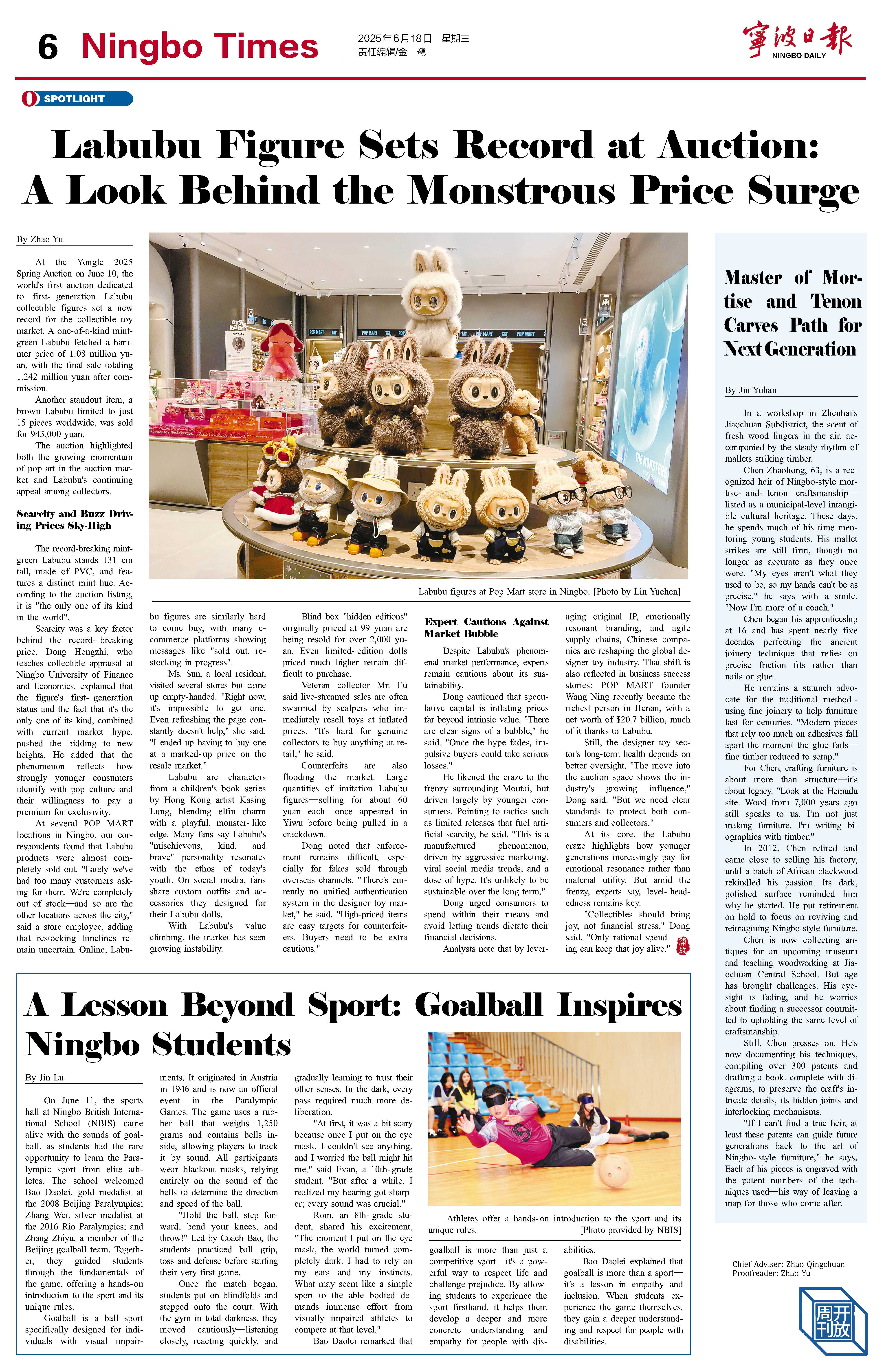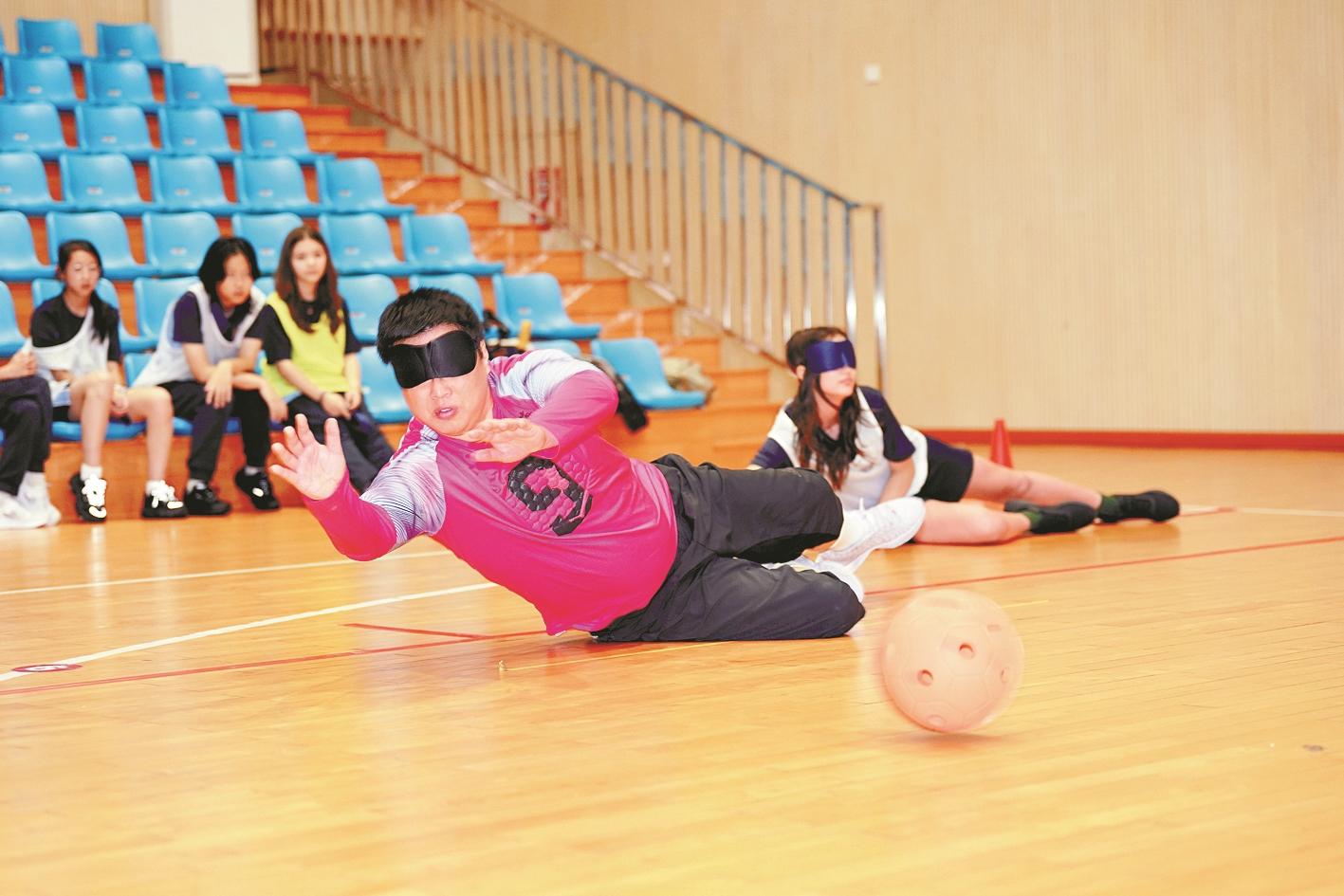By Jin Lu
On June 11, the sports hall at Ningbo British International School (NBIS) came alive with the sounds of goalball, as students had the rare opportunity to learn the Paralympic sport from elite athletes. The school welcomed Bao Daolei, gold medalist at the 2008 Beijing Paralympics; Zhang Wei, silver medalist at the 2016 Rio Paralympics; and Zhang Zhiyu, a member of the Beijing goalball team. Together, they guided students through the fundamentals of the game, offering a hands-on introduction to the sport and its unique rules.
Goalball is a ball sport specifically designed for individuals with visual impairments. It originated in Austria in 1946 and is now an official event in the Paralympic Games. The game uses a rubber ball that weighs 1,250 grams and contains bells inside, allowing players to track it by sound. All participants wear blackout masks, relying entirely on the sound of the bells to determine the direction and speed of the ball.
"Hold the ball, step forward, bend your knees, and throw!" Led by Coach Bao, the students practiced ball grip, toss and defense before starting their very first game.
Once the match began, students put on blindfolds and stepped onto the court. With the gym in total darkness, they moved cautiously—listening closely, reacting quickly, and gradually learning to trust their other senses. In the dark, every pass required much more deliberation.
"At first, it was a bit scary because once I put on the eye mask, I couldn't see anything, and I worried the ball might hit me," said Evan, a 10th-grade student. "But after a while, I realized my hearing got sharper; every sound was crucial."
Rom, an 8th-grade student, shared his excitement, "The moment I put on the eye mask, the world turned completely dark. I had to rely on my ears and my instincts. What may seem like a simple sport to the able-bodied demands immense effort from visually impaired athletes to compete at that level."
Bao Daolei remarked that goalball is more than just a competitive sport—it's a powerful way to respect life and challenge prejudice. By allowing students to experience the sport firsthand, it helps them develop a deeper and more concrete understanding and empathy for people with disabilities.
Bao Daolei explained that goalball is more than a sport—it's a lesson in empathy and inclusion. When students experience the game themselves, they gain a deeper understanding and respect for people with disabilities.



